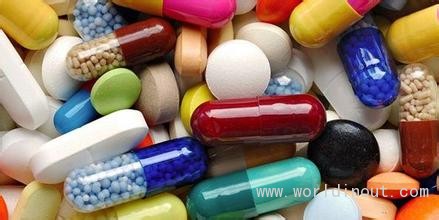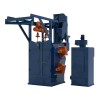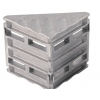
With Indian generic companies guzzling over 90% of the bulk drugs and intermediates funnelled from thousands of Chinese producers, its dependence has come a full circle, leaving it virtually under the control of its neighbour. The once-thriving Indian bulk drug industry looks helpless and is gasping.
The debilitating impact has not been sudden. From a respectable position a decade ago, local bulk drug and intermediate companies wilted under the precipitous Chinese aggression, pushed by gargantuan factories that built on scale and crashed prices. Unbridled dumping that followed added to the colossal tide.
The debilitating impact has not been sudden. From a respectable position a decade ago, local bulk drug and intermediate companies wilted under the precipitous Chinese aggression, pushed by gargantuan factories that built on scale and crashed prices. Unbridled dumping that followed added to the colossal tide.
Pushed to a deep chasm, local units are getting sicker and pleading for sops. Industry groups are knocking at the doors of policy makers seeking safeguards and help in drawing up a revival plan. However, prospects of an upswing in the foreseeable future appear bleak.
The list of companies that are financially stretched is long. Arch Pharmalabs, Orchid Chemicals, Ind Swift Labs, Surya Pharma, Parabolic Drugs and Wanbury are among those in various stages of corporate debt restructuring plans, while others are exploring options to exit the businesses and sell out at distressed valuations, if they can find buyers.
Ajit Kamath, Chairman of Arch Pharmalabs, characterises the seriousness of the situation, saying it is a matter of time before the API (active pharmaceutical ingredients) industry is decimated in India. "What the industry needs is parity or a like-for-like treatment that China metes out to Indian exporters," suggested the first-generation entrepreneur who supplies drugs to large generic companies.
The government has done little beyond naming the year as that of the bulk drug industry. A policy framework has been in the works for some time. Industry-wide discussions have reached a peak and the Prime Minister's Office is said to have taken cognisance of the situation and promised to hasten support to local companies.
Over the past decade, the generics industry, to which bulk drug manufacturers sell ingredients, have benefited from Chinese supplies and have consolidated and grown in regulated markets such as the US. However, in the rush to seize commercial opportunities, the drug makers neglected the vital link in the manufacturing chain - of keeping its raw material sources intact.
Such is the extent of the oft-termed "Chinese invasion" that generic drug makers are losing the ability to bargain or order desired quantities. If prices are not favourably negotiated and supplies are restricted, India's competitiveness as a generics hub may be in serious jeopardy. "China can at its whim press the button and lead to our downfall," said a retired industry expert, asking not to be identified.
For mass-use products such as the antibiotic amoxycillin, the Chinese have swamped the market, leaving no room to compete. The same dominance is more or less visible in multivitamins. Folic acid, which cost Rs 4,500 a kg at the start of the year, has now increased 11-fold to Rs 50,000 per kg. Prices of some other ingredients and intermediates used in anti-infective drugs have doubled.
"Our companies are fascinated by formulations as those products fetch higher margins. Bulk drugs, in contrast, are less appealing. Why bother when the Chinese have filled the gap?" quipped one mid-level executive at a large Hyderabad-based producer of bulk drugs and generics. "These companies have their eyes on the windscreen, but driving is unsafe without a rear-view mirror," he remarked.







